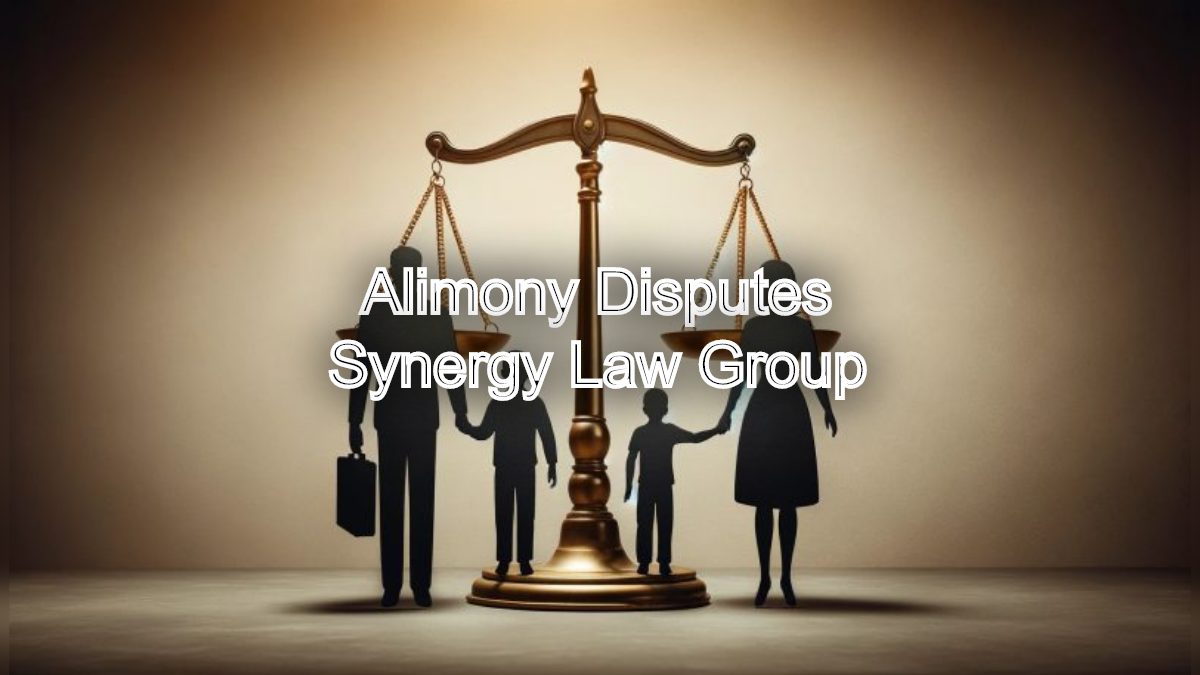Alimony Disputes: Alimony, also known as spousal support, is a court-ordered payment made by one spouse to the other after a divorce or legal separation. While it can be a complex and emotionally charged process, understanding the legal framework and employing effective strategies can significantly impact the outcome of alimony disputes. Synergy Law Group, a leading family court law firm, specializes in handling alimony cases and provides expert legal advice to ensure clients’ rights are protected.
Alimony Disputes: Best Ranking Family Court Advocate’s Legal Strategies: Synergy Law Group
Understanding Alimony Laws
Alimony laws vary from state to state, and the specific factors considered by courts can differ. However, some common factors that influence alimony decisions include:
- Length of the marriage: Longer marriages often result in longer alimony terms.
- The standard of living during the marriage: The court may consider the lifestyle maintained by the spouses and award alimony to maintain a similar standard of living.
- The earning capacity of each spouse: The court may consider the income-earning potential of both spouses.
- The age and health of each spouse: Older or disabled spouses may be eligible for longer-term alimony.
- The needs of any dependent children: Child support obligations may impact alimony awards.
Key Strategies for Alimony Disputes
- Seek Legal Counsel Promptly:
Consulting with an experienced family law attorney as soon as possible is crucial. An attorney can provide guidance on your rights, assess your financial situation, and develop a strategic approach to your case. - Gather Financial Information:
Collect all relevant financial documents, including tax returns, bank statements, investment records, and property appraisals. This information will be essential to accurately assess the parties’ income and assets. - Understand the Different Types of Alimony:
There are various types of alimony, including:
- Permanent alimony: A long-term or indefinite support payment.
- Time-limited alimony: A support payment for a specific duration.
- Rehabilitative alimony: Support to help a spouse acquire job training or education to become self-sufficient.
- Pendente lite alimony: Temporary support during the divorce proceedings.
- Negotiate a Settlement:
In many cases, it’s possible to reach a mutually agreeable settlement through negotiation. A skilled attorney can help you negotiate a fair and equitable agreement that addresses your needs and protects your financial future. - Prepare for Litigation:
If a negotiated settlement is not possible, the case may proceed to trial. It’s essential to be prepared for litigation, which involves gathering evidence, presenting arguments, and cross-examining witnesses. - Consider Post-Divorce Modifications:
Life circumstances can change after a divorce, and it may be necessary to modify alimony payments. A knowledgeable attorney can help you navigate the process of seeking modifications.
The Role of Synergy Law Group
Synergy Law Group, a renowned family court law firm, has a proven track record of success in handling complex alimony disputes. Their team of experienced attorneys is dedicated to providing personalized legal advice and aggressive representation to clients.
By understanding the intricacies of alimony law and employing effective legal strategies, Synergy Law Group helps clients achieve favorable outcomes. They work diligently to protect their clients’ rights and ensure that they receive fair and equitable alimony awards.
FAQs
Alimony, also known as spousal support, is a court-ordered payment made by one spouse to the other after a divorce or legal separation. It’s designed to help the receiving spouse maintain a certain standard of living.
Several factors can influence alimony awards, including:
Length of the marriage:
Standard of living during the marriage:
Earning capacity of each spouse:
Age and health of each spouse:
Needs of dependent children:
To ensure a fair alimony settlement, it’s crucial to:
Consult with an experienced family law attorney: An attorney can guide you through the process and protect your rights.
Gather financial documents: Collect all relevant financial information to support your case.
Understand your rights: Familiarize yourself with alimony laws in your jurisdiction.
Be prepared to negotiate: A negotiated settlement can often be more favorable than a court-ordered decision.
Consider mediation or arbitration: These alternative dispute resolution methods can be more efficient and less costly than litigation.
Yes, alimony can be modified under certain circumstances, such as a significant change in the income or circumstances of either spouse. It’s important to consult with an attorney to understand the specific requirements for modifying an alimony order.
Synergy Law Group, a leading family law firm, offers expert legal advice and representation in alimony cases. Their experienced attorneys can help you:
Understand your rights and options.
Gather and organize financial documents.
Negotiate a fair settlement.
Prepare for and litigate your case, if necessary.
Seek modifications to alimony orders as needed.
Conclusion
Alimony disputes can be emotionally draining and financially complex. By seeking the guidance of a skilled family law attorney like those at Synergy Law Group, individuals can navigate the legal process with confidence and secure their financial future. With a deep understanding of alimony laws and a commitment to client satisfaction, Synergy Law Group empowers clients to overcome challenges and emerge stronger.
Read More
- Adultery Laws Explained: Senior Family Court Legal advisor’s Expertise
- Voidable marriage: Expert Divorce Advocates in Chennai
- Understanding Adultery Laws: Insights from Synergy Law Group
- Protect Your Rights in a Contested Divorce: Expert Strategies
- Women’s Rights in Divorce: Expert Legal Support
- Ministry of Law and Justice:




